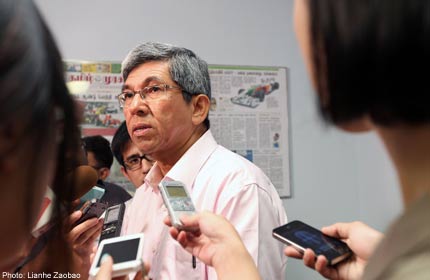
SINGAPORE
COMMENT: EUGENE WEE
Netizens, you can relax.
The Media Development Authority (MDA) has repeatedly said that its new online licensing scheme is not meant to clamp down on Internet freedom.
Socio-political website The Online Citizen has openly declared that it seems to fit the criteria for licensing that MDA had set out, declaring that its 171,601 unique visitors clearly exceeds the 50,000 mark set by MDA.
But the authority continues to say that there is no need for it to be licensed.
Good news, right?
But as expected, online sites have come out strongly against the licensing regime and questioned when it will be their turn to be licensed.

From the start, MDA's explanation for the need for this new scheme is that since traditional print and broadcast media have to be regulated, then so should online media.
The aim may be parity, but the reaction both online and off, suggests that clarity on how and when new rules will extend to others is lacking.
On the face of it, the rules look simple - if you report one Singapore-related news story a week and have a reach of 50,000 unique visitors, you need a licence.
After that, if you put up content that breaches certain standards, such as those regarding good taste, religious sensitivities and materials relating to vice, you'll get into trouble with the law if you don't take them down.
Questions
But there are questions on how the rules will be applied. For example, how do you measure the 50,000 unique visits? Through an unnamed "range of data sources, including traffic monitoring and consumer surveys", MDA said.
So far, the authority keeps saying that all it wants to achieve with the scheme is "parity".
What then are the benefits of having this new framework?
The websites are already subject to the Internet Code of Practice, which prohibits content that breaches the standards mentioned above, so as MDA itself has said, "no change in content standards is expected".
As for enforcement, there are existing rules that the authorities can use to deal with offenders.
Throw in the fact that nine out of 10 websites listed by MDA as requiring licences belong to Singapore Press Holdings and MediaCorp, which already abide by licensing schemes applied to traditional media, and it becomes hard to understand what benefit, other than the need for "parity", the new scheme provides.
In other words, is there really a need for a new framework that solves no problems?
eugenew@sph.com.sg

